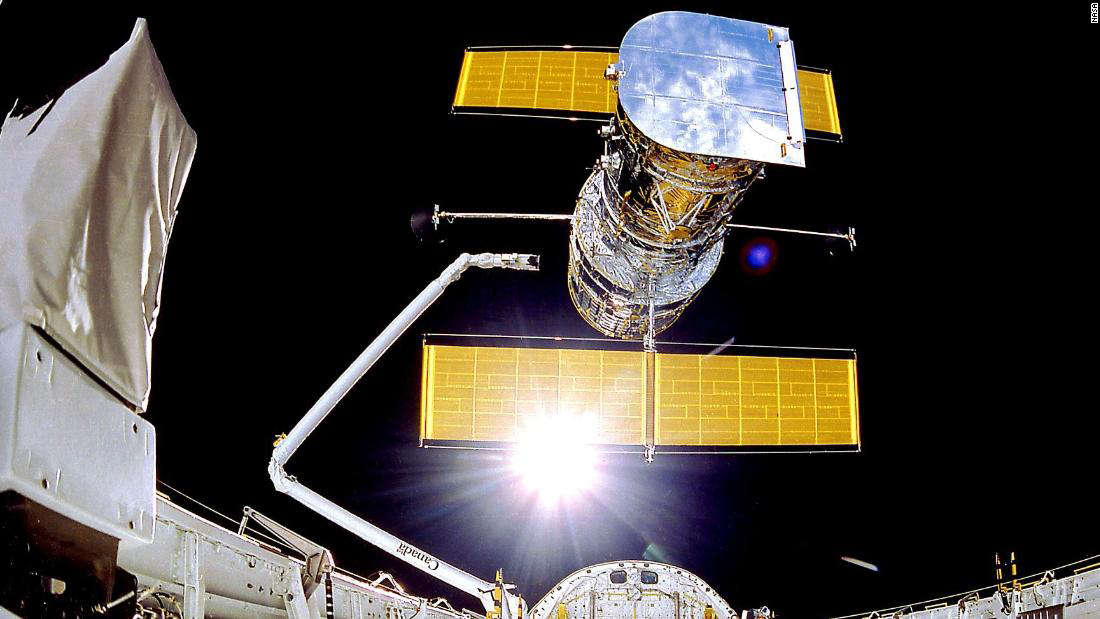By Katie Hunt
NASA engineers are trying to work their magic on the Hubble Space Telescope, which stopped working on June 13 as a result of a problem with the payload computer on board.
After a month of trying, engineers with the space agency were unable to restart the computer — and its backup — so the Hubble team will switch to an alternative power unit on Thursday, according to a NASA statement. If successful, it will take several days to completely return the observatory to normal operations, NASA reported.https://products.gobankingrates.com/r/e48f149e71a19f66115d5f5c8edaefd8?subid=
The Hubble Telescope has shaped our understanding of the cosmos for over 30 years. It discovered moons orbiting Pluto, and it proved that almost every galaxy has a supermassive black hole at its heart. It also played a pivotal role in the discovery of dark matter — a mysterious substance that can’t be seen.
The payload computer — a NASA Standard Spacecraft Computer-1, or NSSC-1, system — is used to control and coordinate Hubble’s scientific instruments. The computer’s programs also analyze and manipulate the data it collects.
NASA engineers believe the problem is related to the Power Control Unit, or PCU, which ensures a steady voltage supply to the payload computer. The PCU is housed with the payload computer in the Science Instrument Command and Data Handling (SI C&DH) unit.
“The team’s analysis suggests that either the voltage level from the regulator is outside of acceptable levels (thereby tripping the secondary protection circuit), or the secondary protection circuit has degraded over time and is stuck in this inhibit state,” according to the NASA statement.
The telescope itself and science instruments remain “healthy and in a safe configuration,” the statement confirmed.
The Hubble Space Telescope, which orbits 340 miles above Earth’s surface, hasn’t always functioned flawlessly. A similar repair was performed in 2008, according to NASA, when another part of the SI C&DH unit failed. A servicing mission in 2009 then replaced the entire SI C&DH unit.
The Space Shuttle was sent up five times to service Hubble. However, the 2009 mission was the most recent — and since the shuttle’s retirement NASA has no way to launch astronauts to the space telescope on a repair mission.
There is a replacement for Hubble in the works. NASA’s James Webb Space Telescope is expected to launch later this year. The large, infrared telescope appears set to become the next great detective in the universe.
But it’s premature to give up on Hubble, said Don Lincoln, a senior scientist at the Fermi National Accelerator Laboratory.
“Astronomers have relied on the instrument for about 30 years. It has generated scientific data leading to countless papers and also gorgeous images that have transfixed the science-interested public. In that sense, an inoperable Hubble would be a devastating loss,” he wrote in an opinion piece for CNN.
“The best-case scenario is one in which both are operating, and we must wait for those clever engineers to work their magic to see if that is possible.”

